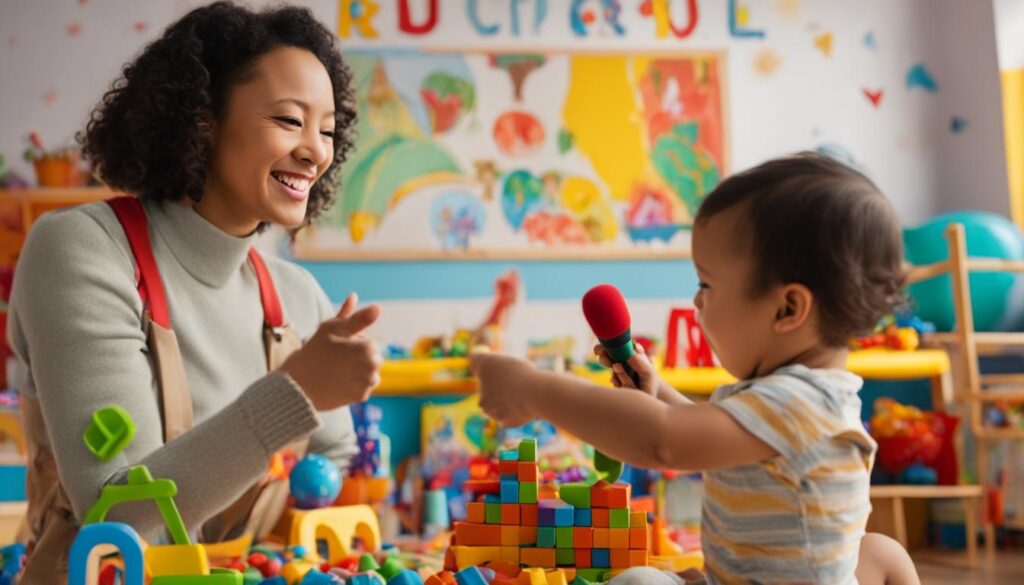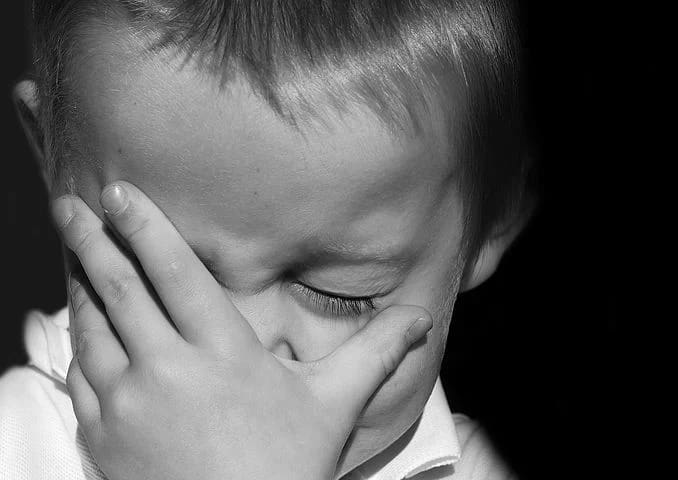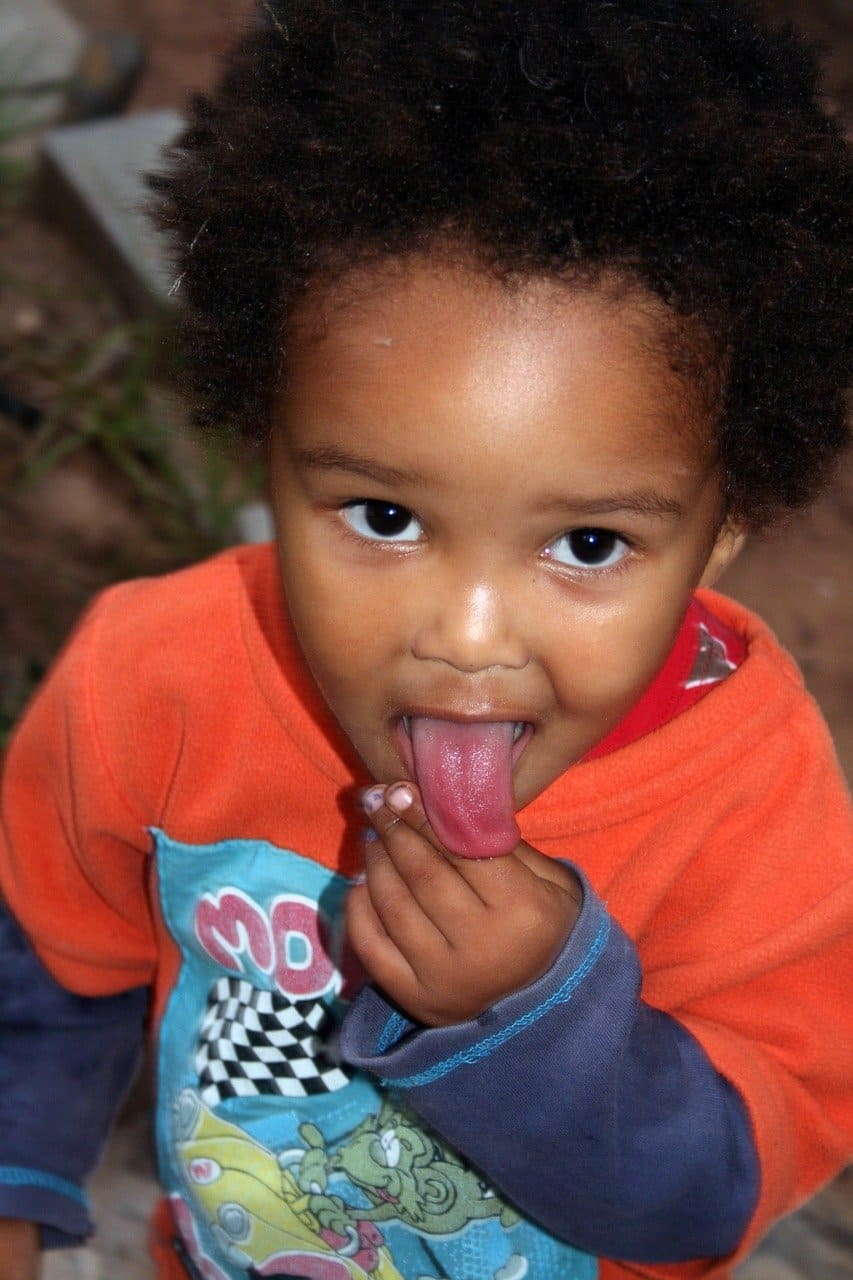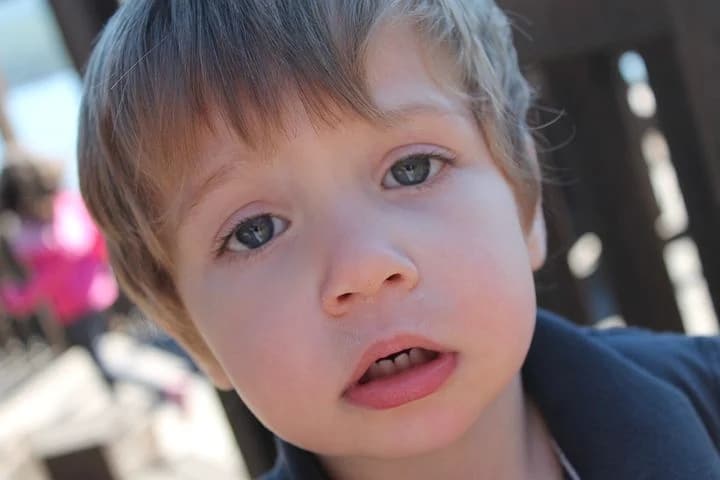Understanding Your 3 Year Old Talking Gibberish
Welcome to today’s article on toddler speech development. As a parent, you may have noticed that your 3-year-old often talks in gibberish, and you might be wondering if this is a cause for concern. Rest assured, speaking gibberish at this age is perfectly normal and even expected. In fact, it can be a sign that your child’s language skills are developing!
According to speech therapy experts, children typically start talking in jargon or gibberish before their first birthday. This is their way of experimenting with sounds and practicing their motor skills. By the time they reach 2 years old, speech therapists expect children to transition from using primarily jargon to using more real words. And by the age of 3, children are expected to have mastered certain sounds and be able to form more coherent sentences.
Key Takeaways:
- Speaking gibberish is a normal part of language acquisition in children, particularly at the age of 3.
- By the age of 3, children are expected to master certain sounds and use them in their speech.
- Parents should be patient and supportive of their child’s speech development, providing guidance and resources when needed.
- Resources like the Toddler Talk Program offer personalized lesson roadmaps and worksheets to help parents teach their child to speak based on their unique milestones.
- If you have concerns about your child’s speech development, consult with a pediatrician or speech therapist for early intervention and support.
Speech Delay in Toddlers: Signs and Causes
A speech delay in a toddler can be concerning for parents. It refers to difficulties in forming the correct sounds to make words. It’s important to understand that a speech delay does not necessarily indicate a problem with comprehension or nonverbal communication.
There are several signs that may indicate a speech delay in a toddler. By the age of 2, children are typically expected to use at least 50 words. If your child is not meeting this milestone, it could be a sign of a speech delay. Additionally, if your child is not using unique two-word phrases or noun-verb combinations by the age of 2.5, or if they are not using at least 200 words or are hard to understand even for people who live with them by the age of 3, it may indicate a speech delay.
The causes of speech delay in toddlers can vary. Some common factors include problems with the mouth or tongue, speech and language disorders, hearing loss, lack of stimulation, autism spectrum disorder, neurological issues, and intellectual disabilities.
It’s important to address concerns about speech delay in toddlers and seek appropriate help. Consulting with a pediatrician is recommended, as they can provide guidance and refer you to a speech-language therapist for further evaluation and treatment. Early intervention and speech-language therapy can be highly effective in improving speech development in toddlers.
To help a child with speech delay at home, you can implement speech development activities recommended by professionals. These activities can include reading books together, engaging in conversations, using gestures and visual aids, and practicing specific speech sounds. Speech therapy for toddlers often involves a combination of play-based activities and targeted exercises to improve speech and language skills.

It’s crucial to remember that every child develops at their own pace. If you have concerns about your child’s speech development, don’t hesitate to reach out for support and guidance. Early intervention can make a significant difference in helping your child overcome speech delays.
Speech and Language Milestones for Toddlers
When it comes to speech and language development in toddlers, it’s important to understand the milestones they should be reaching at different ages. These milestones can provide insights into your child’s language skills and communication abilities. Here are some key milestones for both 2-year-olds and 3-year-olds:
Language Milestones for 2-Year-Olds:
- Saying around 100 words
- Forming two-word sentences
- Understanding basic body parts
- Responding to simple commands and questions
- Reacting to pictures, stories, or songs
By the age of 2, toddlers should have a growing vocabulary and be able to combine words to express themselves. They should also be able to comprehend and follow basic instructions.
Language Milestones for 3-Year-Olds:
- Having a vocabulary of about 1,000 words
- Using 2-3 word combinations regularly
- Calling themselves and others by name
- Using nouns, adjectives, and verbs in three- and four-word sentences
- Asking questions and telling stories
- Repeating nursery rhymes and singing songs
At the age of 3, toddlers continue to expand their vocabulary and develop more complex language skills. They become increasingly proficient at expressing their thoughts and emotions through words.
It’s important to note that these milestones serve as general guidelines, and every child develops at their own pace. While some children may reach these milestones earlier, others may take a little longer. However, if you have concerns about your child’s language skills or if they are not meeting these milestones, it’s recommended to consult with a pediatrician or a speech-language therapist for further evaluation.

Remember, fostering strong language skills and communication abilities in preschool children is essential for their overall development and future academic success. Encourage and engage in activities that promote language learning, such as reading together, singing songs, and engaging in meaningful conversations with your child. With patience, support, and early intervention if needed, you can help your toddler thrive in their language development journey.
Seeking Help for a Speech Delay in Your Toddler
If you notice that your toddler is experiencing a speech delay, don’t panic. Seeking help and support is the first step in helping your child overcome this challenge.
Start by consulting with your pediatrician. They can recommend a screening to determine whether your child is simply a late talker or if there is an underlying condition causing the delay. Early intervention services, such as speech-language therapy, have been proven effective in treating speech delays in toddlers.
Speech-language therapists work directly with your child, using specialized techniques and activities to improve speech and language skills. They can also provide guidance to parents, teaching you strategies to support your child’s speech development at home.
It’s important to address any underlying causes of the speech delay. This may involve addressing hearing problems, physical issues with the mouth or tongue, or coexisting disorders. Remember, early intervention and treatment can significantly improve your child’s speech development. So, don’t hesitate to seek the help your toddler needs.
FAQ
What is considered normal speech development for a 3-year-old?
By the age of 3, children should be able to use 2-3 word combinations regularly, have a vocabulary of about 1,000 words, and be able to call themselves and others by name. They should also be able to use nouns, adjectives, and verbs in three- and four-word sentences, ask questions, tell stories, repeat nursery rhymes, and sing songs.
When should I be concerned about my child’s speech development?
If your child is using less than 50 words at the age of 2, not using unique two-word phrases or noun-verb combinations at the age of 2.5, or not using at least 200 words or being hard to understand even for people who live with them at the age of 3, it may be a sign of a speech delay.
What causes speech delays in toddlers?
There can be various causes of a speech delay, including problems with the mouth, speech and language disorders, hearing loss, lack of stimulation, autism spectrum disorder, neurological problems, and intellectual disabilities.
How can I help my child with a speech delay?
It is recommended to consult with a pediatrician if there are concerns about a child’s speech development. Early intervention and speech-language therapy can be effective in treating speech delays. Speech-language therapists work directly with the child and provide guidance to parents on how to help. The underlying cause of the speech delay may also need to be addressed, such as hearing problems, physical issues with the mouth or tongue, or coexisting disorders.









